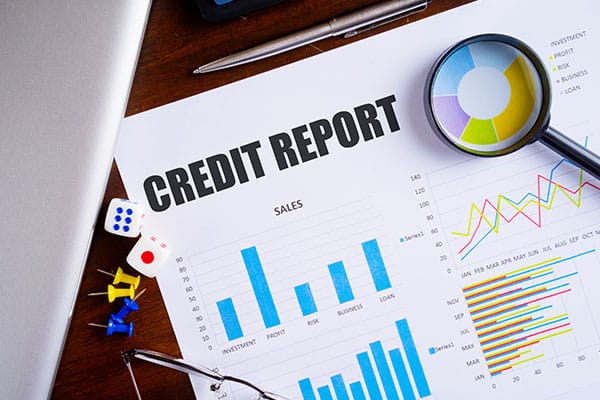
Are you a first-time buyer who would like to raise your credit score? Then, you’re in the right episode! Join credit pro Jeanne Kelly, an author, speaker, and general queen of all things credit, as she talks to host David Sidoni about tips to help you improve your credit score so you can get the best deal when looking to buy your first home. Sure, money is essential when buying your first home, but so is your credit since you’re probably going to ask for a loan to buy that place. And those banks LOVE to give you money for a better rate when your FICO credit score assures them they will get paid back. So tune in to live your dream!
—
Credit Tips For First Time Home Buyers From Jeanne Kelly, A Nationally Recognized Expert In Credit And FICO Credit Score
How To Raise Your FICO So You Can Buy Your First Home
Our topic is credit scores. Here’s what it is, what you don’t know is going to freak you out. Anything that we don’t have any information on tends to be super scary, bum you out a little bit and can be depressing, but the more you know about anything, the less that you’re going to fear it. Unpucker your butt cheeks folks, because in this episode, we have a true credit pro that is going to help you get in the know and crush your fears.
—
I am so excited. You guys know I’ve been trying to find you someone that knows credit. I’ve got, in this episode, Jeanne Kelly. She’s an author, speaker and a leading authority in all things credit. She’s been on The Today Show and featured in Huffington Post blogs. She’s written books on the subject, but most importantly, I checked her out. I listened to her. Homegirl knows what she’s talking about. Jeanne, welcome.
Thank you for having me, David. I’m excited.
This is the number one thing that people who find my show are looking for. Probably, one of the things is there’s a misconception with lawyers and car salesmen and realtors with credit specialists. What’s the difference between your company and everyone else who goes, “I decided to start helping people fix their credit?”
I mean healthy competition. There are a lot of good folks out there in the credit industry. With me, I learned the hard way. I had bad credit and I was going back a few years ago. The pain that it caused me feeling stuck, trapped, when you need it the most yet, you’re paying the most for your mistakes and you have to dig your way out. I thought I knew what I was doing and then realized, “I did that. It was wrong. It hurt me.” Once I learned it, I said, “It’s time to share this.” There’s such an easier way. You just need to know what you’re doing. That’s why I started the company many years ago.
[bctt tweet=”Once you learn something that could help other people, you have to share it.” username=””]
You are speaking my language and my readers out there know that’s why I do this. I do this because I wasted $104,000 in rent in the ‘90s because no one told me I should buy a house. Understanding where you guys are coming from and I know you’re asking for it. Here’s one of the big questions I get that I’d love for an expert to help us. It’s credit cleanup. In general, what works about credit cleanup, and what’s a common misconception about it?
One thing is I have never looked at a credit report without an error. Number one, look at your credit reports. I know that people come to me because of wanting to look at the credit and negative things on there, but it doesn’t matter. Even when we’re going through the report, there are mistakes. Number one, you could be walking around with items on your credit report, hurting your credit score and you don’t even know. That’s one thing.
Also, there is no magic wand. You have to do things the right way. I don’t like to call them tricks, because I want it to be solid. I want it to work. If you know certain things on what to do, then you can clean up your credit, so there are things. Again, it’s looking at the reports, seeing what’s going on there and not thinking that if you have bad credit, it has to stay bad forever.
People don’t want to look at it because usually we always want to pay our bills. We don’t want to not pay our bills. When we do, it’s something that’s stressful. It could be loss of a job, move, health issue or divorce. It’s something that brings us down and we don’t want to look at the report. We don’t want to even think about credit, but that’s when you do have to because there are things you can do that in the long run will help you.
That is a perfect segue leading me into the next question because I heard you answer this before. I’ve been regurgitating different things that I’ve been learning as I’ve been trying to help my readers. I’ve done a lot of first-time buyers, but when I started the show, I dug deep. That was great about what you said that almost everyone because I’ve heard 35%, 55% and 75%. It could be anything.
It could be a utility bill from three apartments ago. That’s something that I said but I did hear you talk about this. I have so many people that are so freaked out about their credit and you brought it up. Do you recommend that people pull their credit on a regular basis? My readers freak out about getting a hit on their credit score.
That’s a great one because to get the free report and without it hurting your credit score, go to AnnualCreditReport.com. It’s a sponsored site by Experian, Equifax and TransUnion, one website and three reports. You’re not going to get your score. We’ll talk about that. Looking at the report, it doesn’t matter what score you’re looking at. You can do this. It’s not going to hurt your credit when you are pulling your credit report and because of COVID, you are allowed to pull it every week until April 2022.
It used to be once a year. No, it’s every single week. Why that’s important for people who are buying a home is because, let’s say, you’re trying to lower those credit card balances and you’re not sure. You don’t want to play the guessing game of when the mortgage lenders should pull your credit. You would be able to say, “No, I definitely see on the three credit reports’ my balances updated. I’m ready to go.” That’s why it’s important if you can check it every week.
That’s unbelievable stuff. That’s the thing people need to know. AnnualCreditReport.com, which I’m trying to remember history. Did they get forced into that or is it something they’ve been doing forever?
They haven’t been doing it forever. I can’t remember exactly when it started, but it’s happening now. It’s a free and great tool. Even if you monitor your credit and have a service protecting your identity, I still believe you should still look at the actual reports directly looking at Experian, TransUnion and Equifax. You have to look at the details.
I think so many of my readers now are much younger than me and they’re an app generation. I know you do everything on your apps and I respect it. I’m trying to learn from you, but in this case, if you’re getting scores and you think you’re fine if you’ve never pulled it and looked at it and you should even continue it, because you never know when another David Sidoni decides to go and get a bad credit report somewhere else. The name thing can happen, the old utility bill, so that’s awesome. Talk about the positives of using revolving credit to grow. I’ve talked to them about authorized users that it’s a great thing to do, but the revolving credit is tricky. How do they use that to best improve their credit?

The thing is, that’s where most of the time we start. Credit cards should be looked at as a tool to get you to the larger item. Even if when you’re young, you’re not thinking about that house. Let’s even think it’s about the first apartment you may want. You still want to have a credit score, so you don’t have someone having to get a co-signer for that. Credit cards have to be your tools. They’re a wonderful thing when you look at them that way. I taught my daughter, talking about authorized users. That’s how I started her.
She got her first job. I put her on one of my accounts and I said, “This is going to be yours. Save your gas receipts.” She had a job at the library. She didn’t want to walk into the gas station. I’m like, “This is a perfect time to teach you more.” She’s always hearing me talk but one-on-one. She used that card. She saved her receipt. She always knew the full thing had to be paid and not until she was in college, she called one day to say, “I don’t understand. Why does it say a minimum payment?” She didn’t even know anything about minimum because I taught her the healthy way. You spent $200. You paid $200.
That’s how we have to look at it. When it does come to your FICO score, they do like to see a small balance. When we’re trying to figure out maxing out the most points, if you have a lot of accounts that have zero balances, put a little something on them, spread out your cards because 7% is that magic number. If you can use 7% of what’s available to you, you will get the most points from the FICO score that we care about for home mortgages.
I went deep on Jeanne and I looked it up when I heard that magic number. I’ve given people different information on the show, but that’s it. Zero balances, I think it’s over six months since they stopped reporting it.
I call it hibernation on your credit report. Sometimes, someone’s one point away from a 700 and everything’s so good. You’re like, “How can we get and pull out that card you haven’t used in a year and you may see a few extra points?” You got to look at everything because we want to have the best score we can before the mortgage.
With the app generation, if you’re paying everything on your phone, what’s the difference between having your debit card as your tap-to-pay versus a credit card? It’s because you can do that, and the next time you’re sitting down, you open the app to the credit card and pay it off. As you said, your daughter didn’t know what a minimum payment was. Do you pay it off right away or do you wait for that timing in the month to pay it off in full?
Here’s another thing. We want to know more about this statement balance state. When does my credit card kick out the statement? It’s because that’s the balance they’re going to report to the credit bureaus. If I find out that date, I always want to pay for it. Instead, a lot of times, people will say, “I get my credit card and I pay it to zero.” What we want to do is flip it around and pay it 48 to 72 hours before the statement gets kicked out to you, so it’ll show a lower balance.
I’m always using my credit cards, so even if I pay it 72 hours, there’ll be something on there within those 72 hours to have some activity. Before the mortgage process, if I’m trying to increase my score, I’m going to look at those statement balance dates. I’m going to say, “I want to leave a little bit of balance 7%, even easy map, 10% and I’m going to pay it then.” That’s the balance that’s going to go onto the credit reports.
[bctt tweet=”You have to just do things the right way. You have to know the rules of the game.” username=””]
If you’re getting those e-statements, you got to go to the top of the statement and find out what date every month they send it to you. Now, a lot of these apps, you go right in and pay whenever you want to, but you have to figure that out, everybody. It’s a great tip, Jeanne. Many people come to me and in the mortgage game, it goes in tiers.
I’ve talked a lot of my readers about going under 20% down, which means you get PMI because now, the PMI is so low, but it’s totally based on tiers. If you’re 760 or higher, your PMI could be $50. If you drop to the 747 2,700, that $50 might become $175 dollars a month purely based on your credit score. What are some other tips that you can give to our folks that they can start to do with the authorized user and the balanced statement date, what else?
The balance statement date is huge and also, be careful about one of your first questions. They’re scared to pull their credit. Be careful who else you are allowing and a lot of people get freaked out about inquiries. It’s a big question. Yes, it’ll be on your credit report for 24 months, but it’s calculated in your mortgage FICO score for twelve months. Do know that. That’s very important when you know you’re going to be house shopping, watch the inquiries for the twelve months. That’s something they can definitely do.
It’s because it is a different score. That’s something I’ve talked to them about before too. You’ve got 25 or 28 different credit scores.
First of all, there are so many credit scores out there and that’s the confusion, because like you’re saying, the apps out there like Credit Karma for instance or whatever. They’re out there and it’s a great tool. You’re seeing information, but that’s not the same score. Ninety percent of lenders use the FICO scoring model.
To confuse everyone a little bit, FICO doesn’t just have one score, there are many versions of the score. Let’s say you get your credit card statement and they say, “We’re going to give you your FICO score for free.” That’s that most likely is the FICO eight score. That’s still not going to be the same score when going for your mortgage. The mortgage FICO is 2, 4 and 5, a little older scores.
The bottom line is this. Know the rules of the game. Here we go, 35% payment history, pay your bills on time, you will get the most part of that score. Also, note that time heals all wounds. Don’t think because you had some late payments in the past that, “You’ll never be able to be a homeowner.” That’s not true, but do you know, like now, you’re not going to add another new late for next month and next month, because, at the moment, that’s where they hurt the most the older they get it. They’re there and it’s part of the score, but it’s not going to hurt as much, so 35% payment history and 30% balances.
We’re mostly talking revolving. I’m not going to say that installments aren’t included in that, but you can pay off a car loan for $20,000 and you’ll see maybe 1 to 3 points of an increase. If you pay that off on a credit card, you could jump up 100 points, so 30% is the balances where you keep them and then 15% length of credit, how long you’ve been using it and then 10% types of credit like installment and credit revolving and 10% new credit.
That’s the love-hate part because yes, we want you to get a new credit card and add healthy credit, but not right at the moment before that large purchase. Always be on top of your timing with that. The worst thing is you find the house. Now, you’re shopping for furniture and applying for credit and you didn’t close yet. You don’t want to be getting those new accounts.
I tell people all the time because it can also affect on the mortgage side, your debt to income ratio. I have seriously had people that are tight and we get past the contingency or the condition period. They go out and spend $1,200 on a washer and dryer and that $1,200 purchase has nothing to do with the credit score, but that hits. That’s a huge tip for everybody. Don’t go out and open your living spaces. Don’t get a furniture line of credit right then, because it can affect your score. That’s awesome.
One of the things that I finally said was, “I’m going to nail down, Jeanne.” I kept emailing and calling until she took my call. I told her my readers are dying to hear because I’ve been hearing for a couple of years about being able to use your rental history for some good because I always tell my folks, “Let’s talk about getting you a plan to buy a home even if it’s two years from now because your rents are going to nothing.” Now, they’re going to start reporting it. Of course, it’s the government, so it’s going to be slow. Jeanne, you’ve been helping people do this for a while. Tell them about what you and your company do to help people report the good part of your rental history.
There have been companies that have done this before, but they’re not included in the FICO score for mortgages. To me, it was never helpful because that’s what we need when we’re talking about home buyers. I work with another company that reports the information. It’s a tool in my credit toolbox. It’s something that I know it works. It works on only two of the credit bureaus, so it is not part of the Experian score, but when it comes to your mortgage and they pull the credit reports, they pull all three and they’ll delete the high score, delete the low and take the middle.

We don’t want to report when you’re always over 30 days late, but if you’re paying on time, the beautiful thing about this service is they can go back two years of payment history, put that on your credit report and have that calculated in your score. I have seen someone who had no score at all and all of a sudden get a beautiful score because it gives them two years of history of an account. From no score to a score, that was done within 30 days. It was incredible.
Part of the reason why I want to bring Jeanne on was to give us all these fabulous insights. I know a lot of you guys out there are in the planning process. A lot of times, when people talk to someone about the credit, they’re like, “I’m trying to save for a house. I don’t want to spend money someplace else when I’m trying to save.”
Think of it this way, if you have the PMI as I talked about. If it costs you $200 more a month for 30 years because your credit score is too low, wouldn’t it be worth paying $200 one time, 2 years or 1 year earlier and getting your credit fixed, so you save that forever? Not to mention what could happen to your interest rate and everything that you have in your life. It suddenly becomes easier and cheaper.
If you’re in the early phases, I highly recommend that you reach out to Jeanne and her company because they can help you no matter where you are. You can look at your stuff for free. Talk to us about some of the programs, options and the things that you help people with as far as getting their credit in better shape.
The first thing is looking at the report. Sometimes, it’s free advice and we’re happy to do that. I’ll look at a report and we can say, “If you do this and this, you will have a better score.” Sometimes, we have to roll up our sleeves and there is some work to be done. There are some late payments or collections and we need to figure them out. It’s all looking at the report. That’s the main thing. On my Instagram, I have a free link for credit quick review of your score and what’s negative on there. It’s a little tool. I also have my book, The 90-Day Credit Challenge. It’s for free download. You can do these things yourself. I love sharing the information and for you to do the work yourself.
A lot of times, when I didn’t have the money, there was no way I could afford to work with someone and I wish I had this information. You can dive in first. The number one thing to be doing now is getting your credit reports and looking at them. Get out that highlighter and you are going to find mistakes. Even if it’s an address that’s not correct, that should not be on your credit report. Also, I worry about identity theft as soon as I see addresses that don’t belong to you or name changes.
Get out the highlighter and highlight everything that is wrong, that you’re not sure what it is, things that don’t make sense, things that are different on all three reports, why they were reporting differently and start contacting them. I do suggest the old-fashioned way. I know everyone loves the apps and doing everything electronically, but I like sending in the letter right directly through the post office to the credit bureaus if there is a problem or dispute you have.
For those of you out there who don’t know, this is how we’ve been doing it. This is the way the credit bureaus are used to it. Your app is a company helping you show your score. Even if you have the Experian app, TransUnion app or the Equifax app, still the way that they’ve been doing it is if you need to dispute something and that’s where you need the guidance and the help.
Jeanne’s very much like me. We’re cut so much from the same cloth. I say that humbly because you’re the goddess of all things credit. You can start with Jeanne, but if you are a year or two out, go back to episode 19 of the seven-part series on how to financially prepare to buy a home. It’s a seven-part series to teach you how to save money.
The first 5% of that, you give to Jeanne to accompany you to help you get your credit in place if you need to go beyond the free stuff and you start building your down payment because when we get to the end of your credit score is 680, your monthly payment’s going to be $100 more than if your credit score is 740. It’s all about backing the calendar up and finding the right people.
[bctt tweet=”Credit cards should be looked at as a tool to get you to the larger item.” username=””]
I’ve got over 60 episodes in your earholes, and you can read to me for a year. Jeanne, thank you so much. We can find you at @CreditJeanne on Instagram. I have so many people that DM from Instagram. I’m going to get all my followers over to you. Where else can they find you? You’re the first credit person I’ve had on the show because I needed to make sure that my people got somebody super reputable.
Thank you so much. I’m excited to be here. Visit my website, it’s my name JeanneKelly.net.
Two years, you’ve been all over me about credit. Here she is. Jeanne, thank you so much for being here.
David, thank you for having me. I’m just so happy to talk. Everybody wants to be a homeowner so if we can help them do that by this education, then that’s why we’re doing it.
I love everything about how you got into this. The fact that it was so long ago and you’re still here, that touches my heart that this is a mission for you and you’ve grown it. It’s not just one person saying, “Try this, try that.” You have a full company in books, and that’s so exciting to know that you’re there for my readers. Thank you so much. I’m going to let you get back to helping all those people out there. My folks, I’m sure we’ll be in touch. Make sure when you reach out to Jeanne, you tell her that you’re how to buy a homie. Thanks, Jeanne. See you next time.
—
There it is, my How to Buy a homies. You know how much I care about your well-being. I don’t do those interviews because of that because I don’t want every poser out there looking to show you guys a product come to me and say, “Let me be on the show.” My mission is to empower you, give you all the knowledge and all the insider facts that you need. I want to help you guys do this like a rockstar so it warms my heart to know that Jeanne cares as much as I do. She comes from the same place.
I think renting can suck because it did for me. I went through it. I’ve decided now that in my later years in life, I’m going to help you try to avoid it. Jeanne did the same thing. She truly and earnestly went through the heartache of being turned down for a mortgage because of her credit and she decided to do something about it to benefit you. You guys know it’s best to hear from someone who lived the pain. What she said is that those who need the most have to pay the most. It sucks and it’s true.
Those of you out there need to save and end that cycle that you might feel trapped in because it feels like you’re stuck and you can’t do anything. There’s no path for you and you feel like one of those hamsters running on a wheel going nowhere. We’re here to fix that and that’s awesome. Jeanne was incredible. My favorite part of the interview was that even though she owns a company where her goal is to go out there and charge a small fee to help people with that. What’s the number one thing she talked to you about? It’s something that’s for free. That’s awesome. Who does that?
Her biggest tip and the first thing she said was to look at your credit report, not your score or your app, but your whole report. It’s a big thing and it’s free and she gave it to you. I’ve been telling people this for a long while but I love the fact that she reiterated it. It’s www.AnnualCreditReport.com. It comes from all three credit bureaus and it’s to help you pull your credit and look at your full report. It only used to be able to pull one of them every year, you can get all three in over one year, but now, if you’re reading this in 2021, they got a COVID special.
If you’re reading now, she said until April 2022, you can pull all three once a week. That’s the biggest tip. If you guys are reading right there, look at your report. It’s free. Stop guessing and start knowing. Get off the hamster wheel. These facts matter. I love that she said that she’s never seen one report without some mistake. Even though her name is Jeanne, she’s a Jeanne but she not jumping out of the lamp snapping her fingers to make your factual problems disappear. She does help advise people by looking for free at the mistakes on there. If there are mistakes on there, then she might have some little magic to help you clean it up.
There are great tips on how to manage your credit balance. She did say that’s magic. The magic is 7%. If you’ve got credit cards, you don’t get that high score by paying it down to zero every single month. Too many zeros in a row, they’ll stop reporting to the credit agencies so that credit is not doing any good. You’re not keeping that magic 7%. You have to know what your balance statement date is.
That’s the key. Look online, find out what they did they produced your statement, pay it down for about 7% a couple of days before that and using that magic 7%, your score is going to boost when they report to those three bureaus. Once again, I’ll remind you guys, that’s TransUnion, Equifax and Experian is the stupid knowledge you need to be an adult. The most unutilized thing we brought up, don’t forget about the authorized user.
Becoming an authorized user is the best way to grow your history, especially if you’re young. I’ve got eighteen years old readers out there that are thinking of buying a home. If you don’t know a lot about this, google the credit score pie chart. It’s simple. Put those words in Google and take a look at it. You will see the credit history on there. You can use all these tips from Jeanne to become a credit master. Jeanne also said it best, you can’t do it unless you know the rules of the game. How are you going to win if you don’t know the rules?
If you do have some dings on your credit score, she can’t make that go away, but time heals all wounds. You got all these free tips to help you bring it up while you’re waiting for that time. As I mentioned in the interview, if there’s an opportunity that you need to do some clean up sometimes, spending a few hundred dollars 6 months to 1 year to 2 years before you buy a house, doing that with a pro early, that time not only helps other things go away. If you clean it up six months before you go on, that time will also watch your score increase.
Down the line, the things you do now, even if it means you got to spend a little money to do something, it might be working with a credit specialist, it might be you’re trying to move credit cards around paying off a car loan and all those things. The things that you do ahead of time could save you tens of thousands. In a big purchase, if you do something right at the right time, you could save hundreds of thousands of dollars by getting this stuff done early and getting the exact, right situation for you, the best one you could take advantage of.
That means your whole mortgage is going to be the best mortgage that is going to help you because you will be buying a house someday. Not all of you are going to do any cleanup, but for many of you, not doing something with the trusted pro early in this process can cause you dearly. You guys know that I don’t bring anyone on this show that can bring value to you on a journey in buying your home. Trust me, I could have lots of advertisers on here, but I’m not about finding people who want to just sell you something. I only tell you the things that are going to help you with the most value.

Our whole goal is to give you guys a leg up. I’ve been listening to the pros the whole time I’m doing the show. I became an authorized user on my dad’s card. Thanks to Jeanne, I’m using my card at 7%, that’s a magic number. I even went on AnnualCreditReport.com and I printed up all my free reports. Guest what? She’s right, I did find mistakes. Now, my score is healthier than it’s ever been. Follow the tips from Jeanne. You can go to @CreditJeanne on Instagram, you can get a free 90-day challenge book and a free evaluation of your credit. She’s so awesome to come and bring us this incredible, free and valuable information. If you need some big help, go to JeanneKelly.net.
You guys know where to find me. I’m @DavidSidoni on Instagram, How to Buy a Home group on Facebook and DavidSidoni.com or HowToBuyAHome.com if you’re looking to dig deep and start your plan. We want you to succeed. We know the best thing for anybody to do is to have a plan. If it’s not the right one, I’ll give you advice, but start a plan. Working on your credit while also talking to your unicorn realtor and unicorn lender, if you’re doing all things at once, all that means is you can do this quicker and you can dump your rising rents sooner, probably a lot sooner than you think.
My goal is to help you thrive, to find that this is a real possibility to start your adulting in a confident manner. There is a lot of information out there that’s not great for you. There are a lot of people out there that are trying to sell stuff. The great thing about starting this show and getting my How to Buy homies checking in with me is we’re in the position to make sure that now, you’re getting good people out there who found a way to make a living by providing real quality service to people like you who needs to be pointed in the right direction.
Go ahead, if you’re weird about being a use, be a user and use me. Use unicorn nation who’s going to help you years before they ever get paid. Use Jeanne and her free tips. Nobody understands you more than those of us who have been there ourselves and are now trying to tilt the scales in your favor. It’s a tough world out there. We want to help you avoid the crap sandwich life could be in some days. You guys are smart. Can you do this on your own? Yeah, you can do this, but now you know that you can do this with guidance from people who were in the know, have care, empathy and want you to do this the right way.
Eventually, that will probably save you thousands, tens of thousands or maybe even hundreds of thousands of dollars by doing it right. It’s time for you to get a plan and start doing this smarter and faster. Get off that stupid hamster wheel. It’s not because things are difficult that we do not dare, it’s because we do not dare that things are difficult. I’m here for you and Jeanne’s here for you. There are tons of information in there and other great people interviewed on the show because we know every single day we watch people do this. If you’re on the right path, trust me, you can do this.
Important Links:
- Jeanne Kelly
- AnnualCreditReport.com
- The 90-Day Credit Challenge
- How To Financially Prepare To Buy Your First Home – Part I – Previous episode
- @CreditJeanne – Instagram
- @DavidSidoni – Instagram
- How to Buy a Home David Sidoni & Associates Real Estate – Facebook
This podcast was started for YOU, to demystify things for first time home buyers, and help crush the confusion. After helping first timers for over 13 years, I knew there wasn’t t a lot of clear, tangible, useable information out there on the internet, so I started this podcast. Help me spread the word to other people just like you, dying for answers. Tell your friends, family, and perhaps that random neighbor you REALLY want to move out about How to Buy a Home! A really easy way is to hit the share button and text it to your friends. Go for it, help someone out. And if you’re not already a regular listener, subscribe and get constant updates on the market. If you are a regular and learned something, help me help others – give the show a quick review in Apple Podcasts or wherever you get your podcasts, or write a review on Spotify. Let’s change the way the real estate industry treats you first time buyers, one buyer at a time, starting with you – and make sure your favorite people don’t get screwed by going into this HUGE step blind and confused. Viva la Unicorn Revolution!
Instagram @DavidSidoni
Tik Tok @howtobuyahome
About Jeanne Kelly
 Jeanne Kelly is an author, a speaker and a widely sought-after credit coach. Fifteen years ago, Jeanne was turned down for a mortgage and she realized that she needed to understand why and fix the problem.
Jeanne Kelly is an author, a speaker and a widely sought-after credit coach. Fifteen years ago, Jeanne was turned down for a mortgage and she realized that she needed to understand why and fix the problem.
Today, Jeanne has become one of the country’s foremost authorities on credit, credit reports and credit scores. She is the author of two books, she has appeared on The Today Show, The Lisa Oz Show, Blogs for the Huffington Post, Credit.com and her advice has helped thousands around the United States to build stronger and healthier credit.

